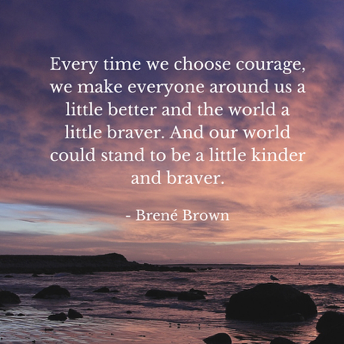Almost every major religion teaches “The Golden Rule” in some form. In Christianity, we recognize the phrase, “In everything, do to others as you would have them do to you; for this is the law and the prophets.” In Hinduism, the saying is, “This is the sum of duty: do not do to others what would cause pain if done to you,” and in Islam, “Not one of you truly believes until you wish for others what you wish for yourself.” Yet for centuries, people often find it difficult to show kindness to others, especially those from other cultures or religions.
In the United States, as our country expanded and began welcoming newcomers, immigrants did not always find Americans to be gracious. In the middle of the 19th century, more than half of the population of Ireland relocated to the U.S. because of severe unemployment and famine in their own country. At the same time, nearly 1 million German citizens also left their homeland because of economic hardship. The immigrants were unjustly accused of being poor and disease-ridden; it was thought they were bringing a wave of crime to the new world, and most significantly, Americans were worried the immigrants would take jobs away from those already here. Out of fear and misinformation, they were often ostracized and ridiculed.
Fast forward to the end of the 19th century and the beginning of the 20th century, when a new wave of immigrants reached our shores. Over four million Italians, who were seeking jobs and opportunity, were the new brunt of prejudice and hostility. Likewise, as Chinese, Japanese, Korean, and South Asians flocked to our shores seeking to find a better life for themselves and their families, they, too, were confronted with prejudice from those who had come before them. And of course, we cannot forget about the scores of African slaves who did not come of their own free will, and encountered a far worse experience than all others.
Stereotypes, name-calling, anger, and hatred ran rampant, and unfortunately, many of these negative attitudes exist today. Our children see these put-downs wherever they turn – on television, social media, in music and movies, and even from family members. Oftentimes it is disguised as comedy or joking around, but words and actions cut deep, and there is never a time or place to make anyone feel less than who they are – a beautiful, original person, created by our heavenly father, in his own image and likeness, and most perfectly made.
Today, our students and staff are fortunate to listen to Jodee Blanco, a nationally renowned speaker and pre-eminent voice on anti-bullying. In her program, entitled, It’s Not Just Joking Around, Jodee shares her own personal story and provides resources to promote a culture of kindness in schools. She regularly works with Catholic Dioceses across the country, and this month, she is visiting many of the schools in the Diocese of San Diego. The topic of bullying is certainly not new to our SMS community; we have sought to educate our students every year, and we continue to try to help our students learn to understand, appreciate, and respect everyone, regardless of their background.
So, when your child comes home today, please continue this important conversation with them. Ask them what they learned, and what they might be able to do to help our school to be loving, inclusive, and kind. No doubt, you have had to help your own children work through feelings of insecurity after being the brunt of uncharitable acts, and it is so very difficult to watch your child when they are hurting. Try to remember that almost every student has had this experience at one point or another, and almost every student has also done or said something regrettable to someone else as well. Hopefully, this year we all will recognize how hurtful words can be, and that each one of us must be conscious and reflective of our actions. It takes courage to go against cultural norms, but as Brené Brown so eloquently states, “Our world could stand to be a little kinder and braver”

In Mission,
Kathy

